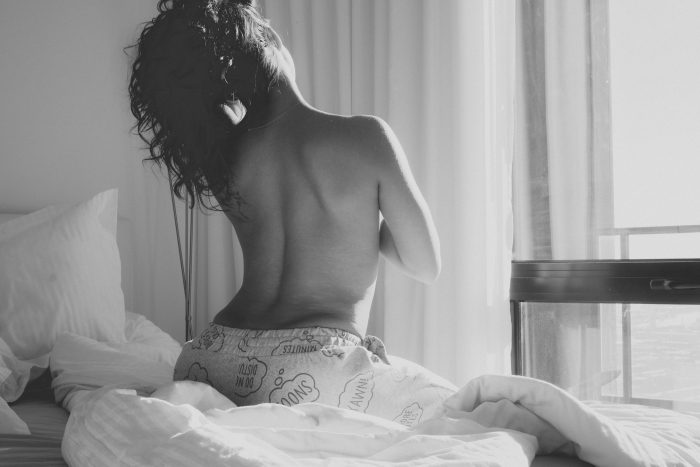How do we love ourselves? Is self-love only about bubble baths, yoga, and kale? Or is there more to it?
The theme of self-love, self-care, and self-appreciation has been in the air around me for a while now. Fortunately, it has become popular, especially in more progressive circles, but even in the mainstream. I am well aware, however, that many of us (including me) have not been taught this from early childhood as we should have been.
As society evolves and becomes more informed, it is becoming apparent that the core element of successfully raising children is showing them their inherent, unconditional value. Not giving out gold stars or unmerited praise, but imparting to them the certainty that they are loved, unconditionally, just for the fact of their existence.
Most of us, by contrast, learn that love must be earned. From early childhood, we are deemed “good” boys and girls when we do or refrain from doing certain things. Later, such feelings of inadequacy and conditionality are reinforced by social standards and external commentary, and we come to believe that to be loved, we need to be somebody: bright, special, strong, smart, rich, beautiful, or successful.
Because none of us are all of these things and all of us are always on the way to becoming, we learn the art of playing roles and wearing masks from early childhood.
We do this to live up to what we think we are supposed to be—a “good girl” or “boys who don’t cry” or someone who gets good grades or never shows their emotions. Eventually, with enough repetition, these masks become fused with our identities. We no longer see them as masks and can no longer live without being attached to them.
These masks represent our “ideal” qualities, those that make us most lovable and popular, according to the outdated version of ourselves that was handed to us by our families and later reinforced by society’s demands. And so we keep on playing.
Sometimes, we succeed in this mask game, and we sustain wearing it, and we sort of get what we want. Others believe that our mask is who we are, and we even partake in mutual reassurances that the masks we are wearing are put on correctly and look good.
Our culture is so mask-driven that we come to depend on our mask and cannot allow ourselves to drop it. Masks also take a lot of energy to maintain. There is always fear lurking in the background: what if others find out? And there’s even some intuitive suspicion that something here might be fake and that we might ultimately be cheating ourselves.
Sometimes, a day comes when we realize that our mask has become a trap, a crutch, or an addiction. But even if it doesn’t, deep down, we all strive to drop the pretense. We know intuitively that doing so is the only path to connecting deeply with one another. And it is true: connecting with masks only works superficially, like a rich man connecting with a sexy, young model.
Deep down, we don’t want to be loved for our fancy feathers; we want to be seen and appreciated for the more authentic qualities we carry, for the struggles we persevere through, for our talents and dreams, for our soulfulness or spiritual essence.
For these to be revealed, the masks have to be dropped. And this is indeed scary. If we drop our mask, the world will see the game we have played all along, the way we tried to trick everyone into believing our fancy appearances. And who knows what’s underneath the mask, anyway. Who am I underneath it? Does one dare ask this question and contemplate the answer?
I can tell you that once the mask is removed, the one we find underneath is fragile. Weak. Raw. Innocent. And most likely, sad, scared, desperate, even enraged. It was locked in the dark and ignored for too long. It was hidden in a dark closet since that very moment in which the little child came to realize that he is not lovable as he is.
So we start learning to fight for appreciation. From that moment on, life loses its spontaneity. The child becomes disconnected from his emotions, from playfulness, and from creativity, only to try to win his parents’ love. Original innocence becomes lost, along with uncontaminated joy and appetite for living. And the mask game begins.
The good news is that this can be undone. I call it the path of vulnerability. It’s the path of familiarizing oneself with one’s essence. Finding this inner child and recognizing him for what he is—the manifestation of divine perfection. Giving him the freedom to express himself in all of his bliss and hell, laughter and tears, dreams and fears, in all the possible manifestations of the human form. Letting him express everything that wanted to be expressed but couldn’t because of the pressure to be somebody, to wear a mask.
The vulnerability coaching I offer is an opportunity to meet oneself raw, unmasked, and to express oneself freely, without a filter. Using ropes as restraints, I recently helped a client let herself roam without the constraints of social conditioning, without filters of what is right and what is wrong.
After her rope journey, she reported, “Weirdly enough, at the intersection of body and spirit, tenderness and harshness, helplessness and resilience, I was able to meet my intention and surrender to the part of me that’s been resisting my personal growth. It ended up revealing itself as my inner child, as an infant. All she wanted this whole time, it turns out, was for me to acknowledge her sense of helplessness so that she could finally rest in it. As you were lifting me, I had no choice but to keep surrendering my weight over to the ropes and to merge with her.”
Another client came undone during a coaching session. As he explored his relationship with his vulnerability, he came to see his feminine. Noticing her suffering and desperation, he recognized that reconnecting to her may be a long and challenging path that might shake his whole world—his habits, career, and relationships. He shared his fear of losing all of his safety and achievements. Yet, he confessed to her directly, in tears, “I don’t need any money or fame or stability in the external world, unless I’m with you because there is nothing more precious than you out there.”
I see such openness with oneself as the birthplace of self-love. When we shine some light onto the space beneath our mask, when this vulnerability and innocence are recognized and valued, welcomed in all of their expressions, with all of their turbulence and bliss, we find the unconditional love we all long for.
This connection of our present, loving awareness with the original innocence that still resides in us is what brings life to living.
~









Read 1 comment and reply